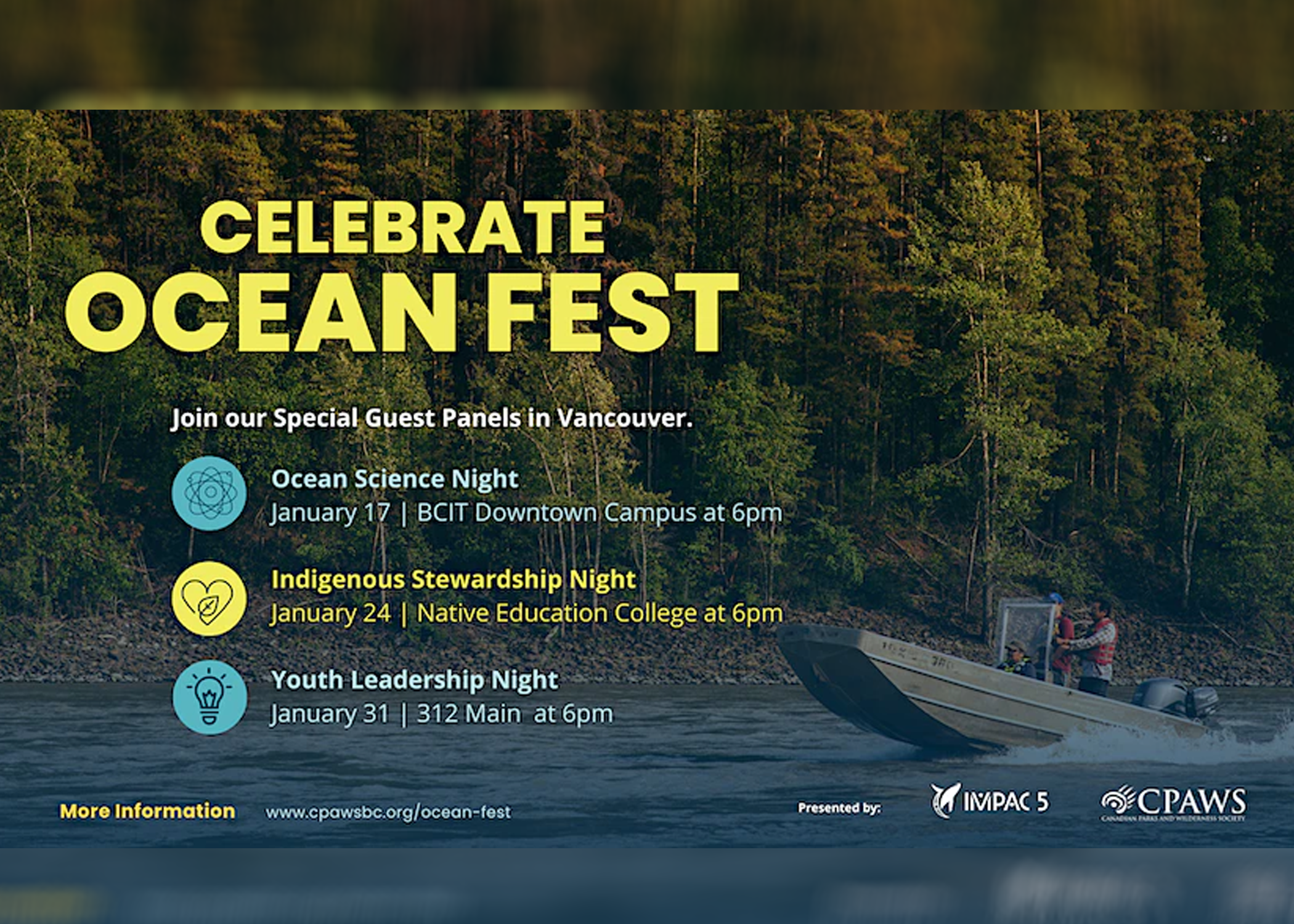
- This event has passed.
Event Navigation
Join them at Tuesday, January 24, at Native Education College to learn about Indigenous-led stewardship and conservation!
IMPAC5 – the 5th International Marine Protected Area Congress – is being held in Vancouver this February. Ocean experts and leaders from around the world will exchange stories and science-backed solutions to protect marine ecosystems for a healthier future.
Join the excitement at IMPAC5’s Ocean Fest Speaker Series events in-person throughout Downtown Vancouver this January.
Doors open at 5:30 PM (PT), presentations starts at 6 (PM).
Ocean Fest Speaker Series is presented by IMPAC5 and CPAWS-BC
TICKETS
Tickets are free but limited to 50.
They invite attendees to make a donation of $10, or whatever amount feels right to you, to support ocean conservation in BC. Donations can also be made at the door.
SPEAKERS
Christine Smith-Martin
Christine is the CEO of the Great Bear Initiative-Coastal First Nations (GBI). She is a member of the Haida Nation and Lax Kw’alaams community.
Christine is passionate about creating opportunities for young people that instills in them the value of Traditional Knowledge when planning for future economic developments. She was taught by elders that “if we take care of our lands and waters they will take care of us.”
Emily Spencer
Emily is a master’s student in The Coastal Marine Ecology and Conservation Lab at Simon Fraser University. Her research aims to support the revitalization of Indigenous food systems through collaborative study. Emily partners with a clam garden restoration project in the Southern Gulf Islands led by nine Coast Salish Nations and Parks Canada.
The Clam Garden Network: What is a clam garden? Get a peek at clam gardens’ role in biodiversity and sustainability. A collaborative study with nine Coast Salish Nations, Parks Canada, Simon Fraser University, and Vancouver Island University, Emily’s master’s research work investigates the impacts of heatwaves on clam gardens.
Wylee Fitz-Gerald
Wylee Fitz-Gerald is a Métis Masters student at the University of British Columbia (UBC), studying the impact of atmospheric particles on ocean microorganisms. Her research has brought her to the Atlantic, Pacific and Arctic oceans.
The relevance of “Indigenizing” research at universities: In responding to the Truth and Reconciliation’s Calls to Action, universities are in the process of figuring out what it means to “Indigenize”. Currently, these efforts are focused on undergraduate courses. While this is an essential step towards equity, it does not address how this will be integrated in the research environment. Wylee Fitz-Gerald with the Earth Science Experiential and Indigenous Learning (EaSEIL) team at UBC helped to bridge this gap by developing workshops for science labs focused on creating space for Indigenous Knowledges, practices, and sovereignty in the research environment.











